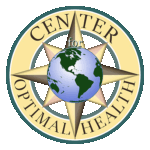Inflammatory Bowel Disease (IBD)
Updated April 21, 2024
Gut Program
IMPORTANT NOTICE
This information is for educational purposes only, to facilitate quality conversations between patients and their personal physician(s). Several essential considerations are required to safely administer any protocol for an individual. This information is NOT intended to diagnose, treat or encourage self-treatment of any medical condition.

This page is under development. Working links will provide starting information. Please let us know about your interest in this page by emailing us here, and check back soon.
Inflammatory Bowel Disease includes Crohns Disease, Ulcerative Colitis, and other autoimmune-related bowel dysfunctions (such as with some cases of vasculitis). It does not include non-inflammatory conditions which include Irritable Bowel Syndrome (IBS) of all types or chronic diarrhea or constipation. By virtue of their autoimmune nature, they share immune dysfunction as a part of the root-causes-complex.
IBD’s can be mild with rare episodes, or aggressive, rapidly damaging the lower (and sometimes spreading to the upper) GastroIntestinal Tract (GIT). Older medications such as steroids (cortisone, prednisone) and others such as sulfasalazine can calm the situation down enough to enable time for the holistic approach to ramp up. Sometime the new immune-modulating drugs are necessary. Modalities such as Low Dose Naltrexone (LDN) are being explored by mainstream medicine (such as at the U of Pittsburgh), as well as by the holistic community.
Incorporating strategies for sub-clinical yeast and parasitic infections, toxicities, biofilms, epigenetic modulation and total-body biome (ecology) can improve the rate and depth of healing.
Testing
Testing for IBD is not always yielding. Conventional medicine usually offers upper and lower endoscopy (colonoscopy), blood tests, and stool testing. Private labs offer more comprehensive gut testing such as ecological and chemical stool testing.
References
Ulcerative Colitis by Jonathan Wright
Microbial Metabolite Regulation of Epithelial Cell-Cell Interactions and Barrier Function.2022
The Gut Microbiota Metabolite Succinate Promotes Adipose Tissue Browning in Crohn’s Disease.2022
Succinate metabolism and its regulation of host-microbe interactions.2023.r
Diet–Microbiota Interactions in Inflammatory Bowel Disease.2021
Natural Products as a Source of Anti-Inflammatory Agents Associated with Inflammatory Bowel Disease
Anti-Inflammatory Effects of Fargesin on Chemically Induced Inflammatory Bowel Disease in Mice.2018
Therapeutic Potential of Amino Acids in Inflammatory Bowel Disease.2019
Selenium and Selenoproteins in Gut Inflammation—A Review.2018
Treatments for Recurrent Aphthous Stomatitis.2010 ( Pubmed )

